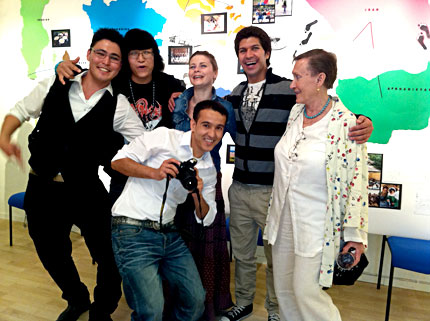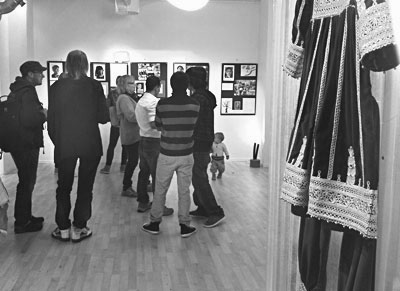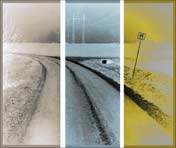SWEDEN - REFUGEE INTEGRATION
Thanks to both general globalization trends and the use of violent means to solve conflicts in countries around the world, cultural encounters are happening more and more frequently amongst many diverse groups. Living with only your own kin in your home society is a feature that belongs to the past. Mixed, multi-cultural, societies are the norm with the problems as well as the new opportunities that this reality gives rise to. 
Since 2004 TFF's co-founder, Christina Spännar, has led three projects on various aspects of the integration of refugees into Swedish society and everyday life.
The Foundation's work in conflict areas around the world has made it natural to ask questions such as:
• How can we be helpful to those who knock on Sweden's doors in the wake of serious, protracted conflict?


• How can we help Swedes to better understand and empathize with these people?


• How can mechanisms be developed that build bridges between Swedes and the others, and how can some of these people then become bridge-builders themselves?


TFF projects in this field are carried out in various places in southern Sweden: Eslöv, Lund and Malmö. Many nationalities have participated over the years: Somalis, Iraqis, ex-Yugoslavs, amongst others.
The current TFF project "Like Bridges Over Dark Waters" which is funded by the Swedish Inheritance Fund focuses mostly on young Afghan boys, who have travelled alone for months and years and have arrived in Sweden without any family members.


The focus has been on developing a sense of community and on facilitating their sharing of their backgrounds and the often extreme hardships encountered on their journey to Sweden.
One of the mediums used is an exhibition of texts, photos and other media that tours around institutions and municipalities.

This provides an opportunity for the young Afghans to dialogue with Swedish visitors and explain why and how they have come to the country and what they can do as Swedish citizens.


It goes without saying that this TFF project is public education in a nutshell; however, it also goes a long way down the road to healing and empowering the participants.

Update by 2017
The above-mentioned exhibition took on its own life and by early 2016 it had been shown at more than 30 places, at schools, libraries, municipality centres and other public spaces as well as at the Museum of World Culture in Gothenburg.
At most of the official openings, the young people who had travelled alone to Sweden told their stories of their journeys to various groups of Swedes.
Since autumn 2016, Christina Spännar and a retired teacher friend help young asylum seekers at a reception centre near Malmö with their schoolwork; that is a good simultaneous exercise in learning the language.
Those who later move to Lund to live on their own may continue to receive that sort of help at TFF but can also raise other issues which may be difficult to handle not only because you are young but also because you are not always sure, culturally, what is best to do and how.
In this manner, the foundation continues to contribute to the development of new social networks - which is essential for a successful integration into the new and very different society.
These projects are conducted and described in Swedish (with the use of interpreters where necessary). The English language is not used. Thus, the links to your right offer insights in Swedish only.


 Get Free Email Updates
Get Free Email Updates Support this site
Support this site Feedback
Feedback About this website
About this website